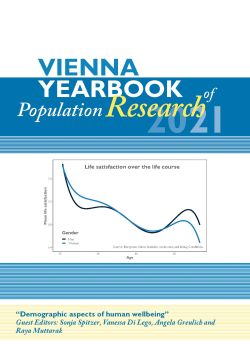
Vienna Yearbook of Population Research 2021, pp. , 2021/03/09
Demographic Aspects of Human Wellbeing

The well-being of older Europeans is of increasing importance given the substantial ageing of the population. This paper comprehensively analyses well-being for the population aged 50+ in 26 European countries, using the newly proposed indicator “Years of Good Life” (YoGL), which measures the remaining years of life that an individual can expect to live in a “good” state. The indicator enables the decomposition of well-being into various dimensions, thereby revealing important heterogeneities between regions and genders. Results show that numbers of YoGL at age 50 vary considerably between European countries. They are highest in Northern and Western European countries and lowest in Central and Eastern European countries, where many “good” years are lost due to low life satisfaction. Interestingly, the high life expectancy levels in Southern Europe do not translate into higher numbers of YoGL, mainly due to the low levels of physical and cognitive health in this region. While women and men can expect to have similar numbers of YoGL, women are likely to spend a smaller proportion of their longer remaining lifetime in a good state. These results demonstrate the importance of using well-being indicators that consider population heterogeneity when measuring human well-being, especially for older populations.
Keywords: Well-being; Population 50+; Europe; SHARE data; Sullivan’s method; Cross-country analysis